It is the lyrical literati Chinua Achebe who, writing in Things Fall Apart, said, “When the moon is shining, even the cripples are hungry for a walk.”
Achebe may have been flaunting his prescient powers.
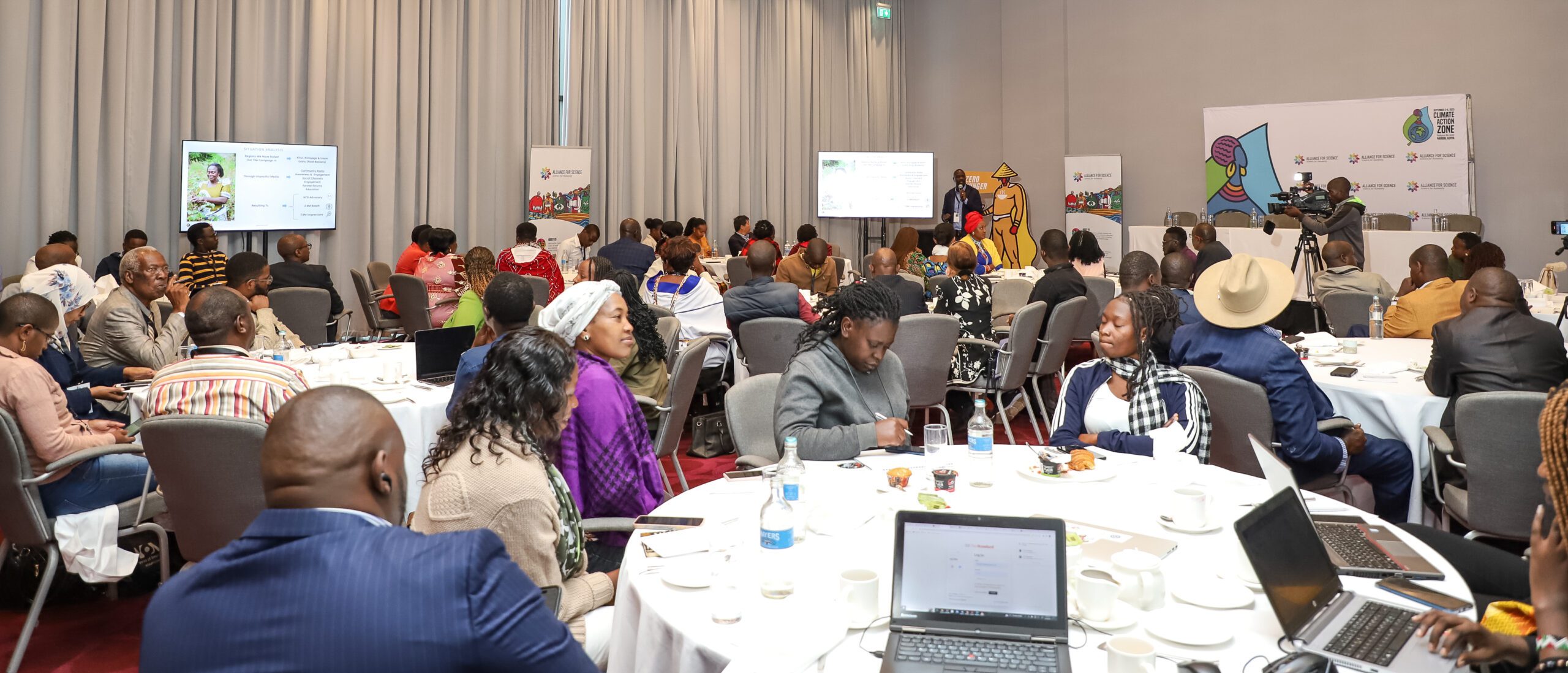
Still, even he could not foretell that on a chilly and wintry August in Nairobi, Kenya, the Alliance For Science would have a consultative press briefing with partners in the climate change sphere, an essential step in solution-based summits that seek to bring attention to locally-driven initiatives in Africa.
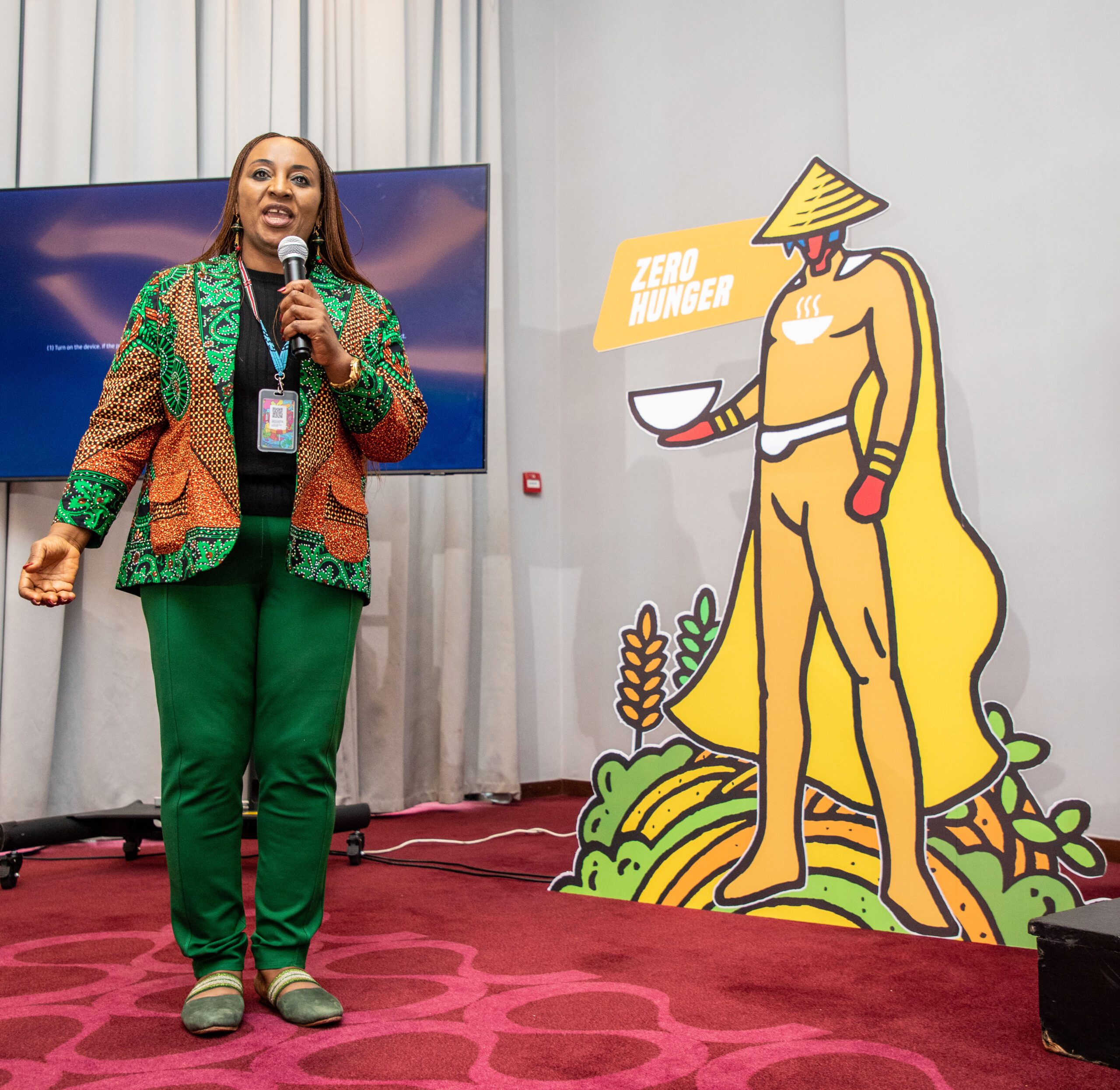
The event, held at the Radisson Blu hotel in Nairobi’s Upper Hill, was set to mark the launch of the Climate Action Zone by the Alliance For Science, led by Executive Director Dr Sheila Ochugboju.
The Climate Action Zone will be a dedicated space for side events focusing on climate actions to accelerate momentum toward achieving the Sustainable Development Goals (SDGs).
“We want the farmers to come up with the information. We are going to the communities and asking farmers what they want. In that conversation, we are getting them to share their sentiments on how they want to be appreciated.”
“We can hope for zero hunger, good health, and that the well-being of the planet Earth is sustainable. But how can we recycle our waste? How do we ensure people have decent jobs? How do we reduce inequality?” posed Dr Ochugboju. “The backbone of everything is in partnerships.”
That’s where Alliance for Science comes in, the hint itself in the naming.
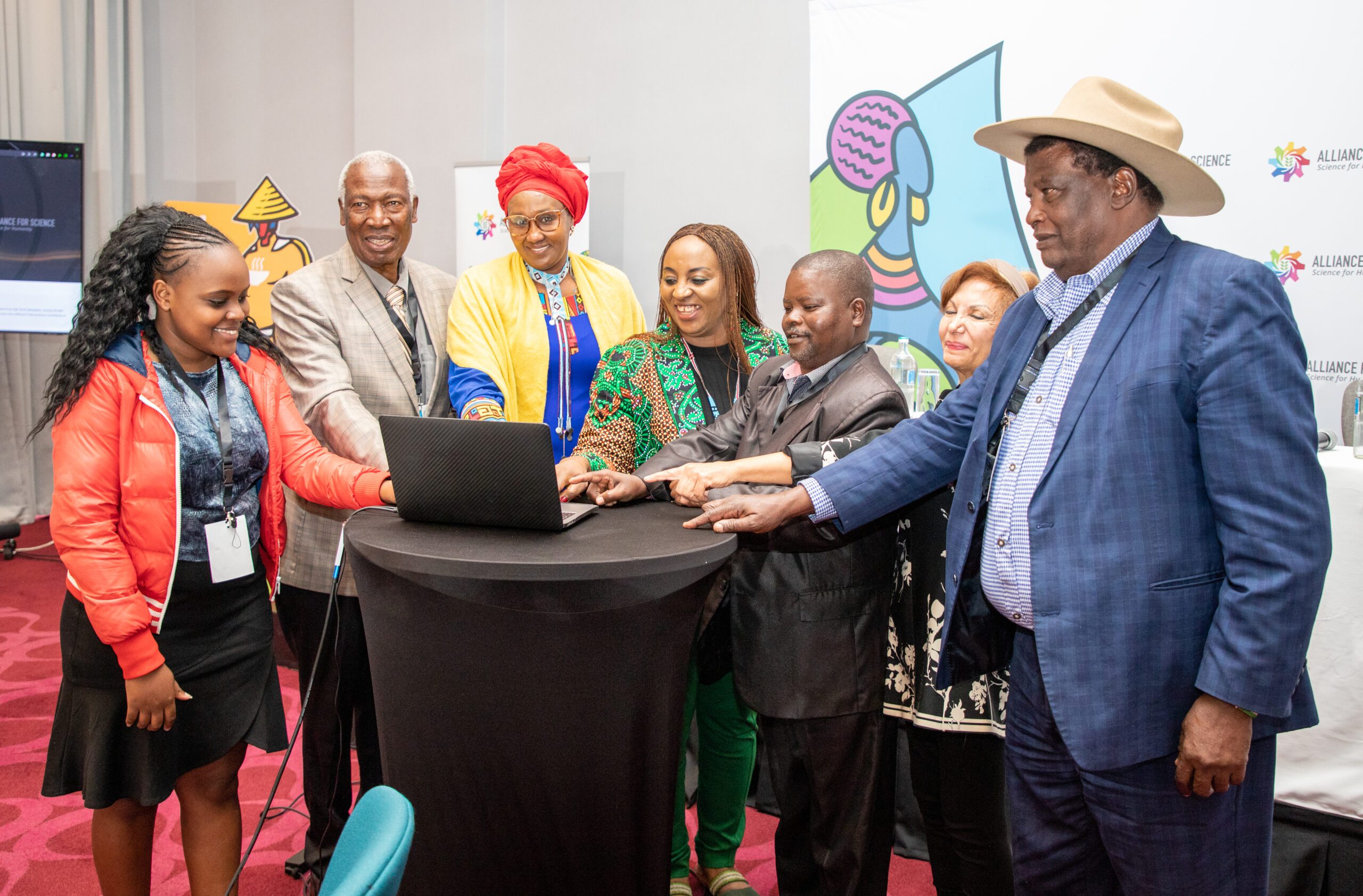
Partners at the event included Kenya Green Building Society, Safaricom Foundation, ICOSEED, and the Red Cross.
The Climate Action Zone will happen during the Africa Climate Week and run concurrently with the Africa Climate Summit (ACS), which will go down from September 4 to 6 at the Kenyatta International Convention Centre in Nairobi, Kenya.
However, unlike the ACS, the Climate Action Zone (CAZ) will start a day earlier, with different activities planned throughout the course.
“We should not say that only the rich contribute to climate change; it’s also the poor.”
Day Zero (Sunday) is about preparing for action and looking at the African Green Building Summit. Day One is the starting lineup with the First Lady Summit. Day Two will have Mama Doing Good, the First Lady’s organization launching its projects. Day Three, if we get everything right, the only question will be, “What will a better world look like?”
Maybe the climate crisis doesn’t need a rebuild, just keyhole surgery.
Perhaps the first step is to return to our roots, a sentiment echoed by Paul Omondi from Kwawi Creatives, one of the partners at CAZ.
Bt cotton yields 6.1 tons per hectare, while the conventional cotton planted alongside it produces just 1.5 tons per hectare.
“We want the farmers to come up with the information. We are going to the communities and asking farmers what they want. In that conversation, we are getting them to share their sentiments on how they want to be appreciated.”
Kwawi Creatives is the implementing partner of #FarmersMattter.
“We are looking towards partnership and advocacy. But beyond that, we want to get this campaign into a national outlook and then a global viewpoint,” Omondi said.
“We aim to get the government to create, or at the very least start thinking about creating, a National Farmers’ Day.”
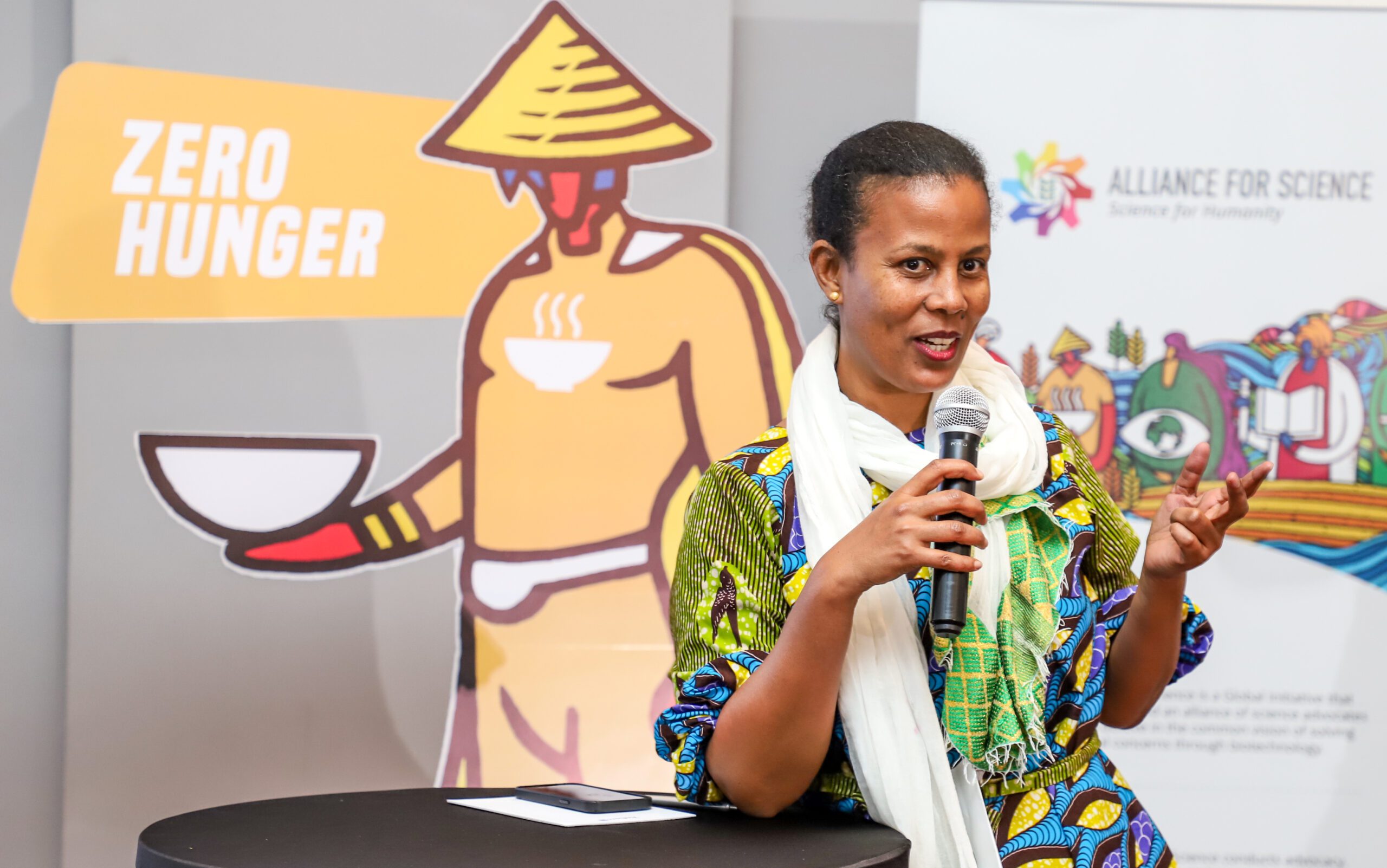
Ake Mamo, the Director of Community Engagement and Outreach at Alliance for Science, buttressed Omondi’s views.
“We have always been taught that you need a doctor once or twice a year. But you need farmers three times a day, at least. We have so many days celebrated for all professionals, except for farmers. And so we thought to create the day or a movement for such a date. We hope that this agenda #FarmersMatter will call you.”
At the 1978 Future Farmers of America Convention, radio broadcaster Paul Harvey captured the importance of the understated farmers in his now often-quoted speech: “So God Made a Farmer.”
“Kenya eats approximately 800 million kilograms of rice annually, yet we produce only 200 million kilograms. We spend a lot of money to import rice.”
“God said, ‘I need somebody strong enough to clear trees and heave bails, yet gentle enough to tame lambs and wean pigs and tend the pink-combed pullets, who will stop his mower for an hour to splint the broken leg of a meadowlark,’ so God made a Farmer.”
As highlighted by Patrick Gitari, the Managing Director of ICOSEED, farmers are finally getting their moment in the sun. This community-based non-State agency works closely with people at the grassroots to enhance sustainable farming.
“We have a network of almost 250,000 farmers and 196,000 school-going children in various projects we work on. We work with cotton farmers in Kitui in school feeding programs and train them to produce fruits for consumption. We are also working on producing hybrid rice in Kirinyaga,” Gitari said.
“We are now teaching the farmers about food budgeting so they can retain some for themselves and sell only the surplus.”
“Kenya eats approximately 800 million kilograms of rice annually, yet we produce only 200 million kilograms. We spend a lot of money to import rice. With Alliance for Science and other partners, including farmers, we are seeing results in adopting hybrid rice, including increased yields of up to two-and-a-half times. We are also moving to Tana River soon.”
Gitari notes that through combined efforts, they have introduced water-efficient maize in Kenya, including WEMA-4141 and WEMA-3106, which have seen production increase with up to 37 bags per acre.
“We are now teaching the farmers about food budgeting so they can retain some for themselves and sell only the surplus. We want the farmers to plant fruit trees, like mangoes, avocados, and pawpaws, to complement their yields. This will also help improve the environment and reduce the effects of climate change.”
“We live in a fast-changing world because of the complex dynamics of population growth. We are more exposed to food insecurity and diseases.”
He, however, had a stern warning: “We should not say that only the rich contribute to climate change; it’s also the poor.”
Dr Ochugboju drew her lessons for Africa’s ability to bounce back, citing it as critical to our survival in the future.
“We live in a fast-changing world because of the complex dynamics of population growth. We are more exposed to food insecurity, diseases, et al. When we see a story working well, we share it,” she said.
She narrates the story of Bangladesh, which became a nation in 1971.
It was a poor country, prone to farming, and by 1974 had had a famine that killed 1.4 million people.
“Would it be possible in less than a generation to wear something made in Kenya—cotton grown in Kenya, woven in Kenya, designed in Kenya, and sold in Kenya?”
“However, in one generation, Bangladesh became the net food exporter of most of the rice we eat and the clothes we wear. One of the lessons I picked was because of its improved food security. They had 30 agroecological zones, developing foods specific to these zones. They have 118 rice varieties, with every farmer knowing which variety works for their zone. Because of that, they reduced food insecurity by over 50 percent.”
Bangladesh is also a net exporter of many fabrics.
“Would it be possible in less than a generation to wear something made in Kenya—cotton grown in Kenya, woven in Kenya, designed in Kenya, and sold in Kenya? From farm to fashion. I dare say it is possible.”
Much government and non-governmental research has been conducted, but there is still a disconnect with the farmers.
As Kenya harvests genetically modified (GM) pest-resistant Bt cotton from its national performance trials, preliminary results show it boosts yields four-fold over conventional varieties.
Bt cotton yields 6.1 tons per hectare, while the conventional cotton planted alongside it produces just 1.5 tons per hectare.
Out of this, the Alliance for Science has been working with a thought leader, shifting how communities prepare for climate change.
How do you help a community move from relief to resilience?
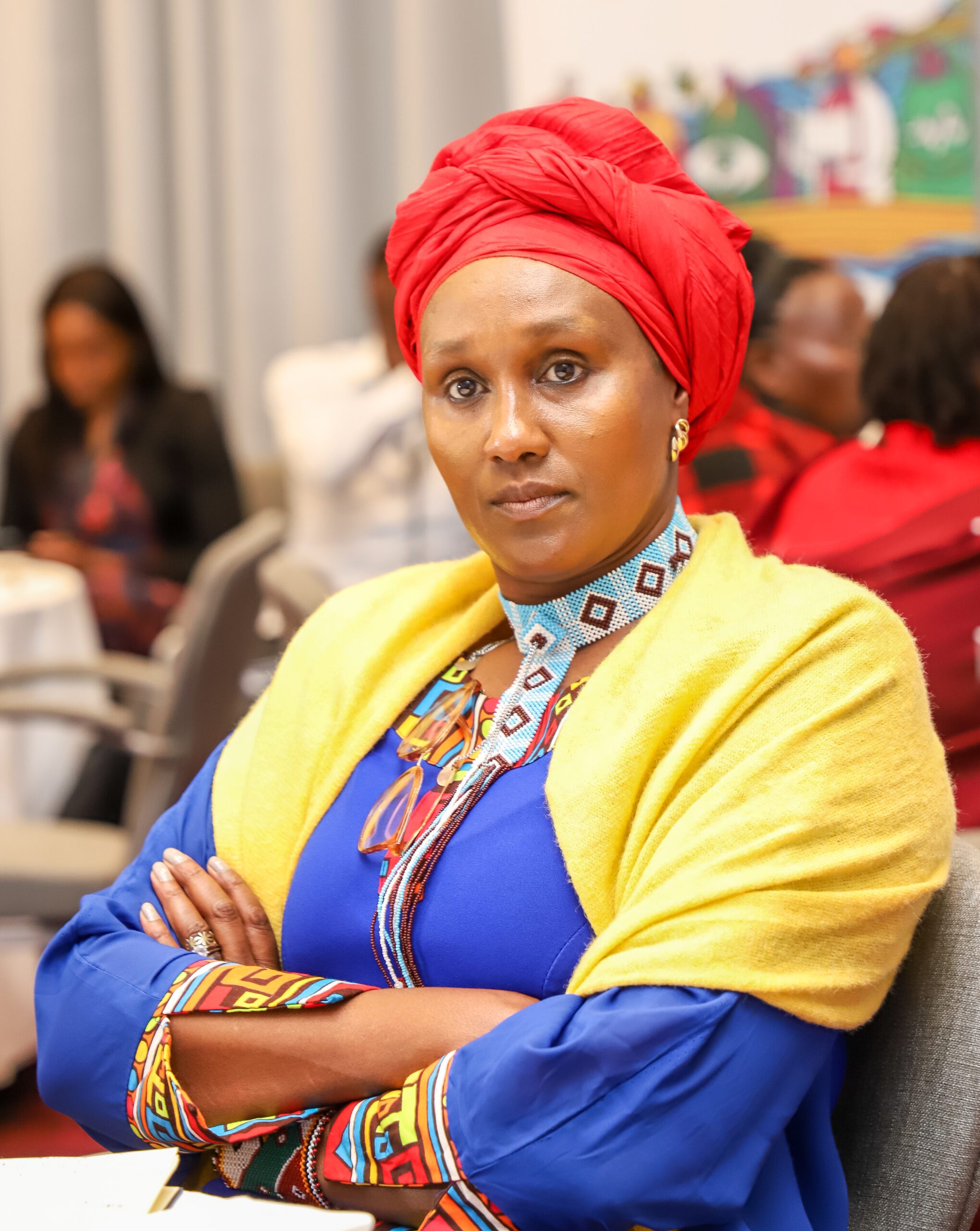
The answer was in Jackline Koin, the former Kajiado County Minister for Agriculture and Livestock who now serves as the Resilience Envoy and Global South Ambassador for Alliance for Science.
“We are now at a time when discussions should leave the boardroom and be led by the communities. Much government and non-governmental research has been conducted, but there is still a disconnect with the farmers,” Koin said.
“We are not yet there. Sometimes, the farmers don’t eat as well as we do, but they are the people who are responsible for what we eat. I am working with a group whose motivation is always about communities. I joined them because it will always be about the community in my new role as a global actor.”
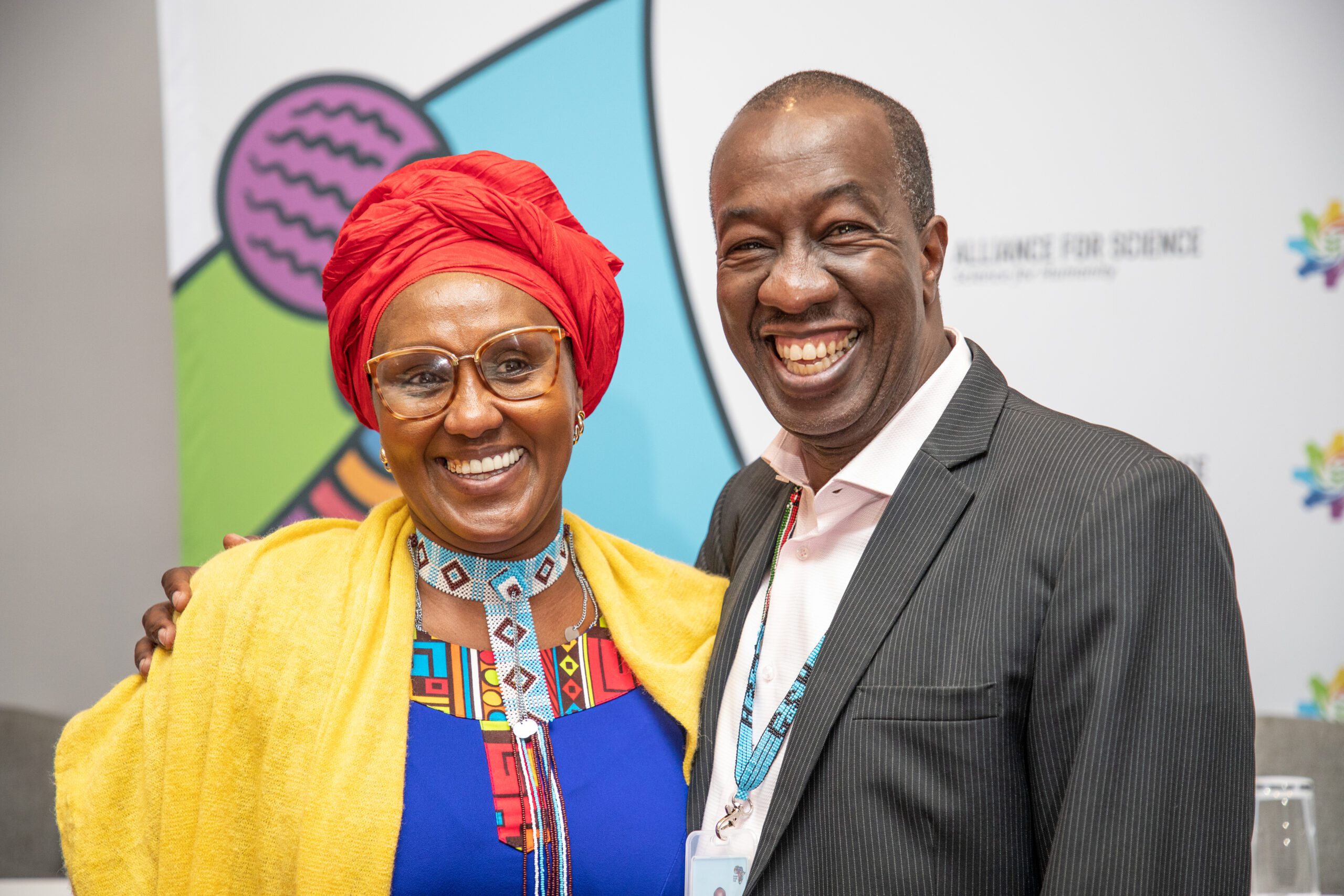
At the Climate Action Zone, it is not where the fight against climate change is being born, but it is where it will be christened.
“Let’s turn every ear in the world about what is coming out of Nairobi,” said Dr Ochugboju. “We will all be responsible for showcasing the best of the country and the continent.”
___________________________________________________________________________________________
A writer from Kakamega, Kenya, Eddy Ashioya is a Sunday Nation, Business Daily, and Saturday Nation columnist. He has written for The Standard, Citizen Digital, Love Matters Africa (Kenya/Nigeria), Independent (Nigeria), The Elephant, and Debunk Media. He has a background in advertising.
